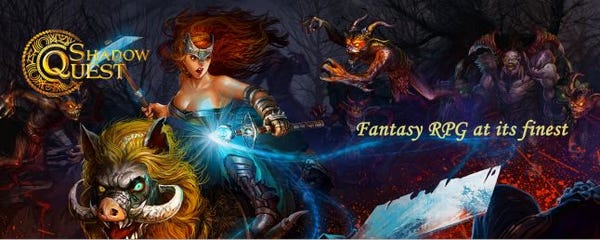Things to be done at the Right Time
There are many success stories out there on how Indie developers managed to get through the tough times and create a game that people love, is received well by the community and gets to pay the bills. Those teams did certain things at the right time.

There are many success stories out there on how Indie developers managed to get through the tough times and create a game that people love, is received well by the community and gets to pay the bills. I want to share an experience that's maybe not as inspiring, but may help upcoming developers to reach certain conclusions before they set on this amazing journey called game development.
Don't get me wrong, making games and being able to create experiences that people enjoy and relate to is amazing, but certain things must be done at the right time...unless you want to play catch up for, who knows how long, with high chances of your dream project to just disappear.
1. Start by picking your team. Unless you're a one man powerhouse, choosing the right people that will embark on the journey of game development is crucial. I'm not talking just about their technical skills, I'm talking values and personal qualities. Will they share the vision or simply be there for the payload.
2. Choose your ideas wisely. No matter how "clone-like", a good game needs to have it's unique selling point. It's that something that connects with the gamers and gets them to stay a while and list....play.
3. Get an early prototype as soon as possible. Make sure it's good. It needs to reinforce step 2. If you feel the prototype sucks, don't try pushing your idea for the sake of ego protection. Learn to scrap it and re-iterate. It's the faze where it doesn't cost as much. Be critical of what you try to create.
3. Once you have a fun playable prototype choose if you want to:
a) Go with a publisher. I won't dwell too much on it. There are great plus sides to doing it. So in case your team lacks experience it's the safest way to go. Creating the best Pitch (without Tinybuild I would still be sending essays via email) for your game is no easy task, so you must learn this craft if you want responses.
b) Enter the arena solo. Well established teams with games that have communities and fans do the right thing by sticking to what they know and doing it independently. We got to do it independently ,but had no experience on what to do. Here are a few things we did wrong ( along with other many things we did wrong):
- Playtesting without biases must become a part of the process. Don't invite the same people to playtest your game twice. Questions asked in your feedback survey must be clear as daylight. By the end of the playtest you have to know where to iterate and why. Friendships are important, but in this context, they create bias-confirmations ( at least it's what they did for us).
- When we developed Shadow Quest, there was no plan for a marketing campaign. It took us 2 years to develop our game and we did it in a vacuum, no one knew what we were creating and thus it's hard to get players to care now. Gamers are a loyal bunch and they enjoy being part of the process, not just receiving the final game.
Market your game before it's done. Start at step 3, or sooner. After you'll be chasing coverage. It will work, but the cost and burn out is enormous.
4. Understand the constraints of your budget. Be it sales from past games or investments of all sorts, knowing how much you're willing to spend to cover the basic costs of salaries, rent and bills needs to be on the table. We're doing it for the love, it's always the main reason, but certain realities must be considered. For those interested, there's an amazing video on how indies can get funding by Mr. Jason Della Rocca. Don't chase Assassin Creed type of games when you only have a limited amount to spend. Limit the scope of your game accordingly.
5. Network with people. People prefer to do business with people they either worked with or have had a real-life chat, rather than emails and Skype calls.
6. Always find ways to get more knowledge and adapt, as individuals and as a team. Working together means, becoming better individuals not only masters of the craft. It's not a box you're creating games in, ego hurts.
I had to watch videos and read a ton of articles just to get a grip on it. Social media engagement, Press Kits, it's all about honing your message and delivering on what you promise. I found this article of enormous help. Also, If you haven't watched this video by Mr. Jack Dalrymple go right ahead :).
That's my lesson learned. It's a competitive market, but it's worth being in every second of it.
We move on, with a release on IOS next week, I've planned this blog, also getting a grip on Reddit, still learning how to interest press in covering Shadow Quest. Game devs are a great bunch of people. After 2 year we're finally getting out of the vacuum space.
It's my first blog ever so any feedback would be very much appreciated.
You can follow me on Twitter @EugenCaraion or check out @ShadowQuestRPG

Read more about:
BlogsAbout the Author(s)
You May Also Like












